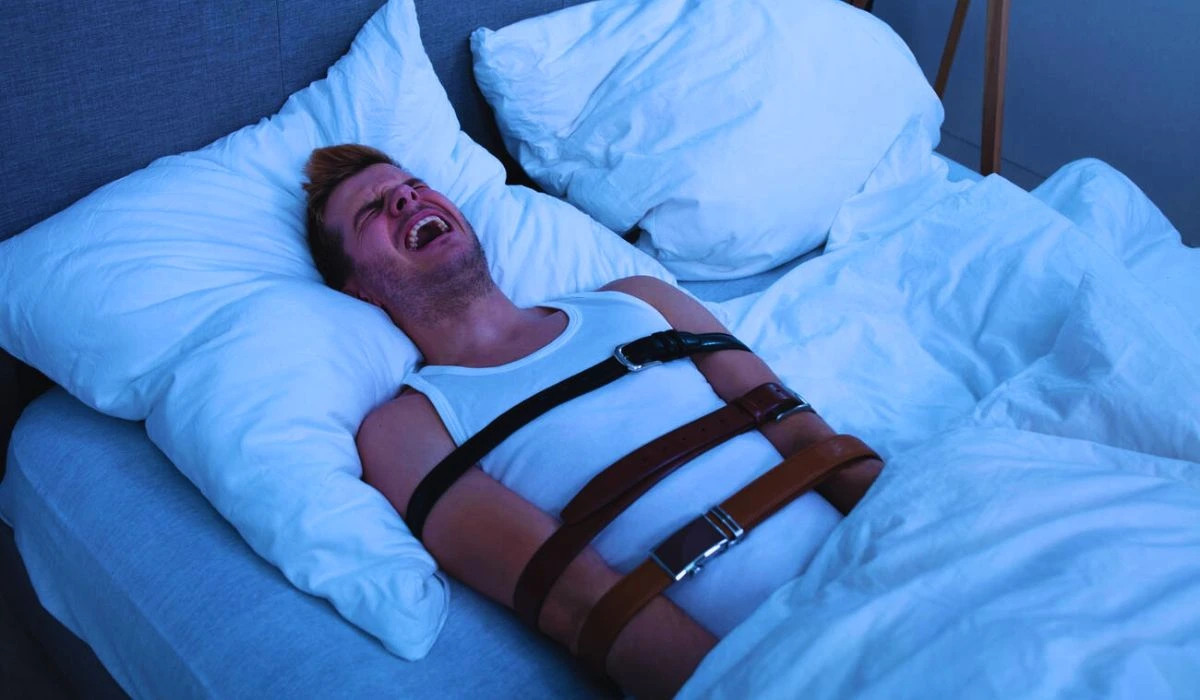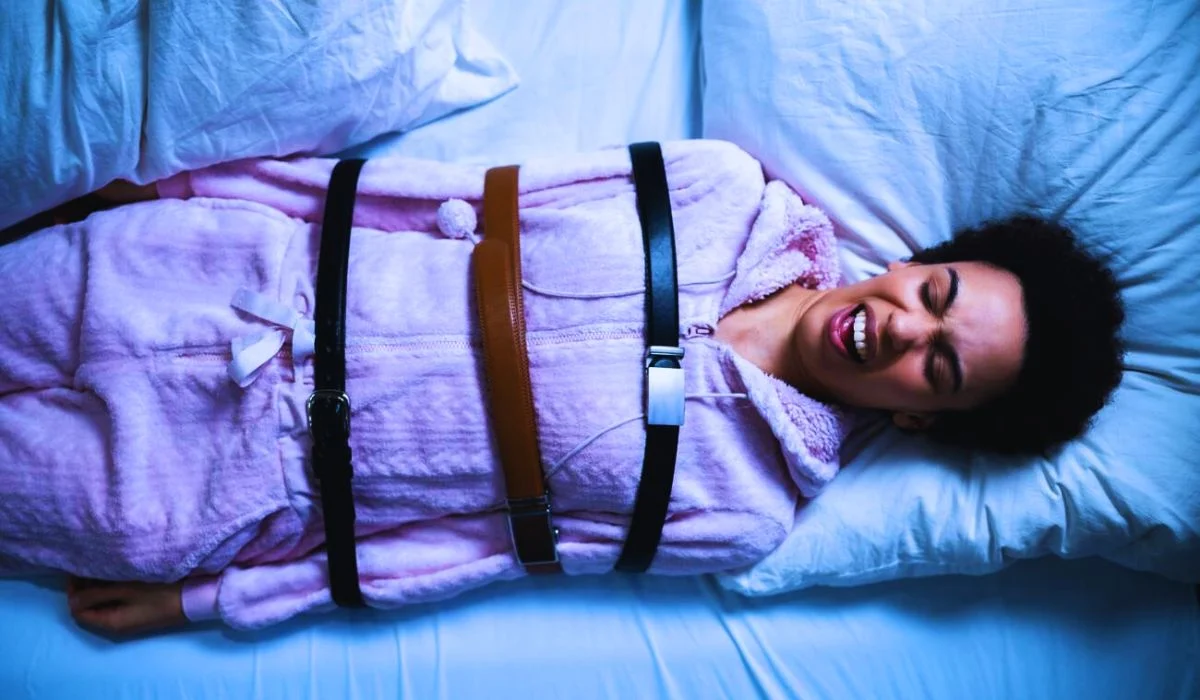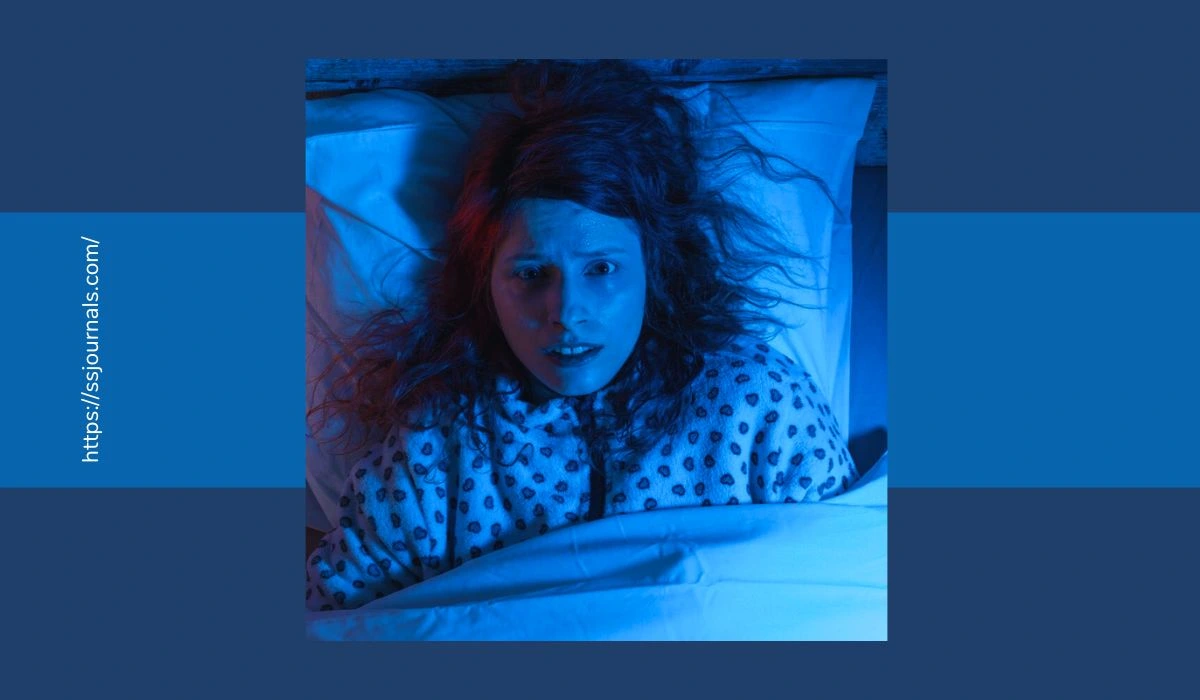Sleep paralysis is a relatively common sleep disorder characterized by the inability to move or speak while transitioning into or out of sleep. It can be an unsettling experience as one feels awake but unable to move or call out for help.
Understanding what causes sleep paralysis and the symptoms associated with it can help those who experience it frequently. While sleep paralysis itself is harmless, being aware of treatments and self-help strategies can help limit episodes.
Understanding Sleep Paralysis
Sleep paralysis occurs when there is discord between the body and mind during the transition between wakefulness and sleep. Typically, during REM (rapid eye movement) sleep our muscles become immobilized so that we don’t act out our dreams. With sleep paralysis, the brain awakens before the paralysis is lifted, leaving one aware but unable to move or speak.

This immobility can last from a few seconds up to several minutes. Though sleep paralysis is not inherently dangerous, being unable to move can feel alarming. Episodes frequently accompany intense hallucinations as part of hypnagogic hallucinations.
Sleep paralysis happens when a disruption occurs between the REM and waking stages of sleep. Researchers believe it is linked to an irregularity in the noradrenergic system of the brain stem that regulates REM sleep. It is estimated that around 8% of people will experience isolated episodes of sleep paralysis.
For some people, it occurs more regularly as part of narcolepsy, a long-term neurological disorder. Sleep paralysis can run in families, suggesting a genetic component. Factors like sleep deprivation, stress, and sleeping in the supine position can increase episodes.
Also Check: Is It Safe To Use Melatonin For Sleep? Dosage, Benefits, And Side Effects
What Are The Causes Of Sleep Paralysis?
There are several potential causes of sleep paralysis including:
- Lack of sleep – Not getting enough sleep or having irregular sleep cycles can increase episodes of sleep paralysis.
- Narcolepsy – People with narcolepsy often experience excessive daytime sleepiness and sleep paralysis. It is caused by the reduced production of hypocretin which regulates sleep.
- Medications – Some medications like antidepressants may increase REM sleep abnormalities. Withdrawal from substances can also trigger episodes.
- Sleeping position – Sleeping flat on the back can make sleep paralysis more likely to occur.
- Stress – High-stress levels and anxiety may contribute to sleep paralysis.
- Genetics – Sleep paralysis can run in families, indicating a possible genetic component.
- Jet lag/shift work – Disruptions to the circadian rhythm from jet lag and shift work can trigger sleep paralysis.
- Sleep disorders – Those with other sleep disorders like insomnia and sleep apnea may be more prone to sleep paralysis.
Symptoms Of Sleep Paralysis

The primary symptom of sleep paralysis is the inability to move or speak when falling asleep or waking up. This can last from a few seconds up to several minutes. Other common symptoms include:
- Immobility and inability to speak – The muscles are immobilized despite efforts to move or cry out.
- Panic – A sense of dread is common as one realizes they cannot move or get help.
- Difficulty breathing – The chest muscles are immobilized which can make breathing labored.
- Hallucinations – Many people report sensory hallucinations like an evil presence in the room.
- Heart racing – A racing heartbeat is common due to the frightening nature of the episode.
- Sweating – Profuse sweating often occurs with a surge of adrenaline.
- Numbness – Tingling or numbness in the limbs may be experienced.
- Headaches – Headaches may occur due to muscle tension from trying to move.
Treatments For Sleep Paralysis
While episodes eventually end on their own, the following treatments can help manage recurring sleep paralysis:
- Good sleep hygiene – Maintaining a regular sleep schedule, limiting naps, and creating an optimal sleep environment can prevent sleep disruptions that contribute to sleep paralysis.
- Managing stress – Relaxation techniques, therapy, meditation, exercise, and social support can lower stress and anxiety linked to sleep paralysis episodes.
- Medications – For those with narcolepsy, medications like stimulants or antidepressants may be prescribed to regulate REM sleep.
- Self-help strategies – When an episode occurs, trying to relax, breathing deeply, and attempting small finger movements can help end it.
- Cognitive behavioral therapy – CBT can help cope with episodes and limit any fear or anxiety surrounding sleep paralysis.
- Avoid triggers – Some triggers like sleeping on the back, irregular sleep cycles, and certain medications should be avoided when possible.
- Ruling out other conditions – It’s important to consult a doctor to determine if the paralysis may be caused by other issues like muscle disorders.
Conclusion
Sleep paralysis can be disorienting, but understanding its causes and what triggers episodes can help. While scary, it is ultimately harmless and temporary. Using relaxation techniques when an episode strikes, maintaining good sleep hygiene, reducing stressors, and speaking with a doctor can lessen occurrences.
For most people, sleep paralysis is simply an inconvenience, not a lifelong condition. However, if episodes become frequent and distressing, consulting a medical professional to rule out narcolepsy or other sleep disorders is advised.
FAQ
A: Sleep paralysis itself is not dangerous, though it can feel alarming at the moment. The immobility and potential hallucinations end once the brain returns to full wakefulness or REM sleep. However, frequent episodes can contribute to anxiety and sleep deprivation.
A: There are no known cases of death directly attributable to sleep paralysis. Immobility only affects the skeletal muscles, not the heart or diaphragm. However, the helplessness felt during an episode can be traumatic for some people.
A: Sleep paralysis is a phenomenon, not a psychiatric disorder. However, it can trigger or exacerbate mental health issues like anxiety, depression, and post-traumatic stress disorder. People already managing mental illness may experience worsening symptoms.
A: The best ways to limit episodes are to maintain regular sleep cycles, reduce stress, avoid sleep triggers like sleep deprivation, get screened for underlying sleep issues, and use self-help strategies to mitigate episodes. If sleep paralysis occurs frequently, consulting a doctor to explore treatment options is recommended.
A: There is no known “cure” to completely stop sleep paralysis episodes. However, episodes may decrease by managing underlying conditions, improving sleep hygiene, reducing triggers, and using medications or therapy if needed for co-occurring issues like anxiety. For many, episodes dissipate with age.

